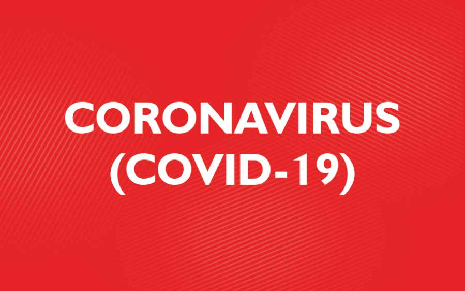Pequeno Príncipe formalizes the Innovation Office
Among the projects that are already in progress, we highlight the solutions TytoCare and brain4care

The Pequeno Príncipe Complex, which has been dedicated to caring for the health of children and adolescents for 100 years through healthcare, teaching and research, is opening its Innovation Office. The centenary history of the institution is marked by innovative initiatives that made it possible to pioneer in several areas, such as complex procedures for pediatric patients, humanizing practices and new methods of diagnosis and treatment. “We are making a dream come true, which is to make our Innovation Office official, a dream that was shared and driven by scientist Sérgio Mascarenhas, our great inspiration for this important step,” says the executive director of Pequeno Príncipe Hospital, Ety Cristina Forte Carneiro.
Mascarenhas is a great enthusiastic of innovation in Pequeno Príncipe. “I consider Pequeno Príncipe Hospital a centenary example for Brazil as a hospital, educational institution and integrated and interdisciplinary teams. It is a great honor for me to collaborate with this great institution,” he declares.
The head of the Innovation Office, Guilherme de Rosso Manços, explains that the Pelé Pequeno Príncipe Research Institute and the Pequeno Príncipe College will benefit from it in an integrated manner with the Hospital, and the work will take place on four different fronts of work: culture of innovation; open innovation; intellectual property and technology transfer; and innovation events and networks. The design of these fronts was also supported by the Technological Business Group at the Federal University of Rio Grande do Norte.
“The creation of the Innovation Office will enhance our institutional capacity for innovation to protect our children and adolescents, as well as the life of the planet, and will allow us to remain aligned with the best innovation practices in relation to other pioneering institutions in Brazil and abroad,” he emphasizes.

TytoCare
TytoCare is an Israeli technology that is being brought to Brazil, in an unprecedented way, by the Pequeno Príncipe Hospital. The negotiations started about two years ago and now the product is about to be introduced in the market. “It is a device that will certainly revolutionize telemedicine practices,” says the corporate director of the Complex, José Álvaro da Silva Carneiro.
The small device allows you to measure the temperature as well as the patient’s heart rate, auscultate the heart, lungs and abdominal region, and generate images of the throat, ear and skin. All of this with the accuracy required by the strict medical standards. The portable device is accompanied by an app that guides how to do these exams at home and transmits the data in real time to a central that can be accessed remotely by doctors.
The equipment is already in use in Pequeno Príncipe for the purpose of clinical research and should soon be available on the market and in the homes of families. “With Tyto equipment, a healthcare professional can examine, diagnose and treat many of the most common conditions, such as ear infections, colds and flu, fever, headaches, eye irritation, congestion, sinusitis, allergies, sore throat, cough and breathing problems, insect bites and rashes, constipation and stomach pains. In addition, it can also be used by the doctor to monitor chronic conditions and health after surgery or a procedure. With this solution, we will allow parents to have excellent care directly from their homes, accompanied by a doctor who may be in another environment, such as in their offices,” says Ety.

brain4care
Another innovation project that is underway is the implementation of the brain4care solution, created by scientist Sérgio Mascarenhas and which has become a startup with operations in Brazil and the United States with the potential to impact one billion people in the next ten years. It is a small sensor capable of monitoring intracranial pressure in a totally non-invasive way. “It is a fantastic innovation, as it allows us to assess and monitor patients with brain tumors, hydrocephalus and injuries that may eventually cause an increase in intracranial pressure without the need for a craniotomy, an invasive surgery that requires an opening in the head for placement of a catheter,” details the neurosurgeon from Pequeno Príncipe, Adriano Keijiro Maeda.
When developing a non-invasive method, this solution also makes possible to monitor one more vital sign, in addition to those known as the pulse, temperature, respiratory rate, blood pressure and pain.
The device is already being used at Sírio-Libanês Hospital and at Rede D’Or and Rede Ímpar hospitals for adult patients. Internationally renowned institutions – such as the medical schools at Stanford University, Johns Hopkins University and the University of São Paulo (USP) – have also validated the brain4care system. Pequeno Príncipe will be responsible for contributing to the advancement of knowledge about the monitoring of intracranial pressure in pediatric patients.
In addition to research, the equipment will also be used in clinical care. “The projects will initially be developed in patients linked to the Neurosurgery Service and other patients investigated by the Neurology Service with clinical manifestations of intracranial hypertension,” informs the technical director of Pequeno Príncipe, Donizetti Dimer Giamberardino Filho. In total, five pieces of the equipment will be in use at the Hospital starting in September.
More
COVID-19 Report
Until 10 a.m. on August 28, the Pequeno Príncipe Hospital treated 556 suspected cases of the disease, 83 of which were confirmed
Pequeno Príncipe launches the Gala 2020 – A Journey of Hope
In an on demand online format, the initiative will share health, science, gastronomy and music content with the institution’s supporters, celebrating hope, empathy and solidarity




